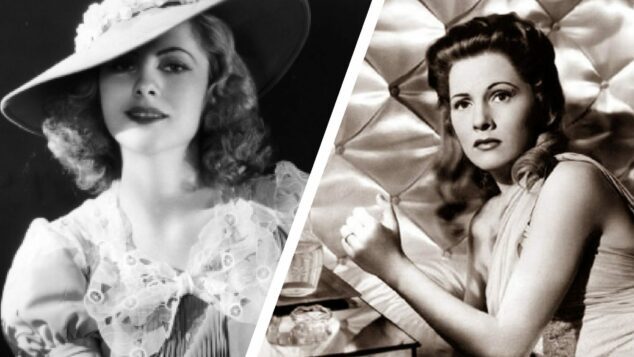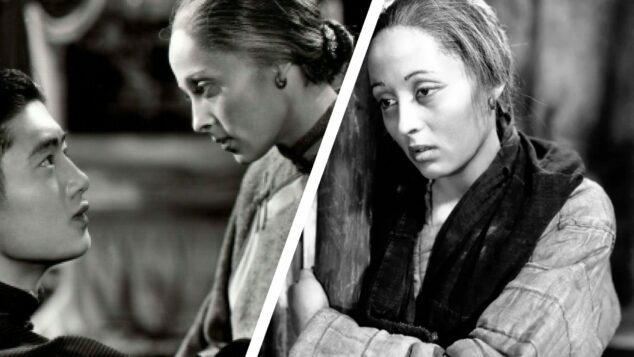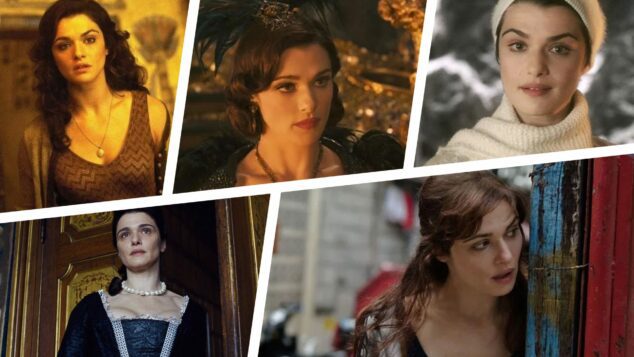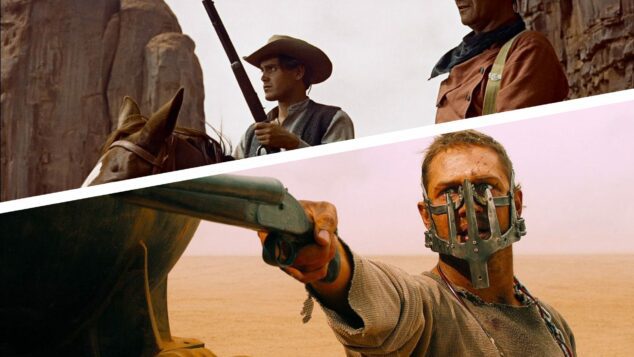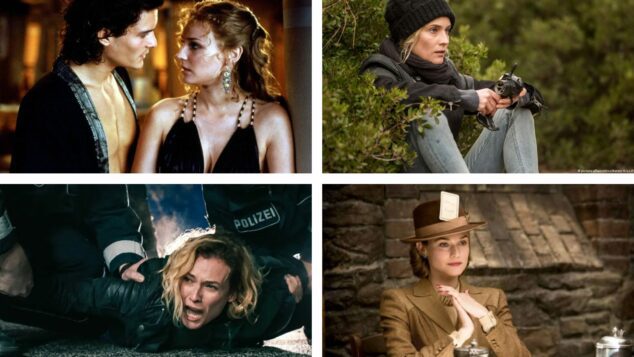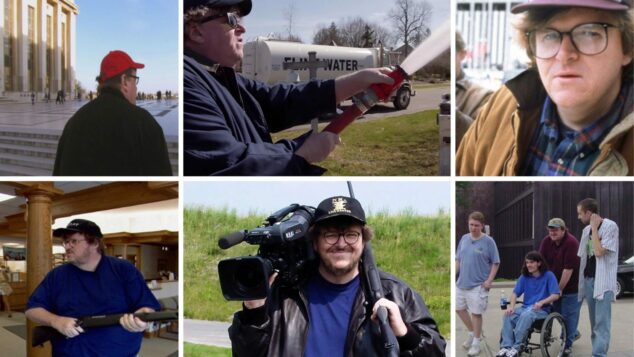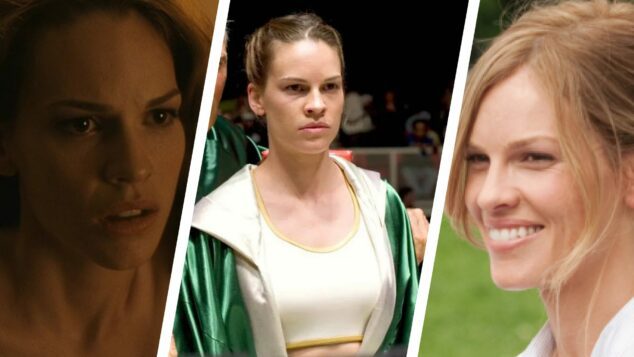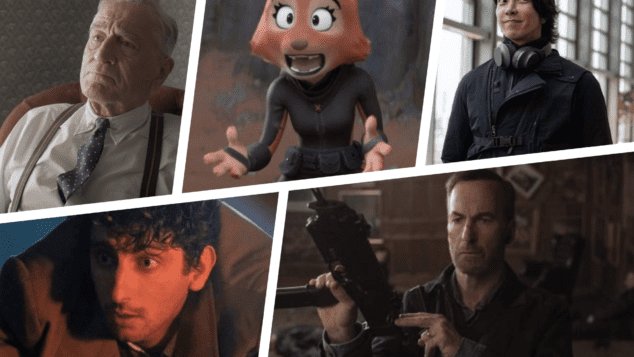1001 Movies You Must See Before You Die is a film reference book edited by Steven Jay Schneider with original essays on each film contributed by over 70 film critics.
It is a part of a series designed and produced by Quintessence Editions, a London-based company.
The book is made up of a wide variety of films — ranging from Hollywood classics to foreign classics to cult films to silent films, and everything in between.
Each entry contains a synopsis of the film, background information about the production, cast, critical analysis, and finally a review.
Films are recommended for their artistic merits; there are no top tens or best movie lists.
Every year they add new films, cut some no longer relevant films, and write mostly new reviews for the books.
Steven Jay Schneider is an internationally renowned scholar in film criticism and theory. Schneider is also the founding editor of Film International and the editor in chief of Directory of World Cinema: Britain.
He has written extensively about cinema for academic journals such as Quarterly Review of Film and Video, Senses of Cinema, Studies in European Cinema, The Velvet Light Trap, and many others, as well as for Sight & Sound and the New York Times.
Here we’ve picked two films from each decade that the book and list covers.
Our hope is that this gives you a taste of what the book is about, as we obviously aren’t going to cover all 1001 films here. This gives us a bountiful selection of films without going overboard.
I should also mention that the reviews/synopses of the movies included here are our own and not a representation of what the critics from the ‘1001 Movies To See’ book actually think of the films.
1001 Movies You Must See Before You Die
Let’s start our list off with the first decade of the 20th century.
1900-1910
A Trip To The Moon (1902)
A Trip to the Moon (French: Le Voyage dans la Lune) is a 1902 French adventure film directed by Georges Méliès.
Inspired by a wide variety of sources, including Jules Verne’s novels From the Earth to the Moon and Around the Moon, the film follows a group of astronomers who travel to the Moon in a cannon-propelled capsule, explore the Moon’s surface, escape from an underground group of Selenites (lunar inhabitants), and return to Earth with a captive Selenite.
It features an ensemble cast of French theatrical performers, led by Méliès himself in the main role of Professor Barbenfouillis, and is filmed in the overtly theatrical style for which Méliès became famous.
The running time of 14 minutes makes it one of the longest films of that period. An original hand-colored print was discovered in 1993 and restored in 2011.
According to David Kalat, A Trip to the Moon was one of Méliès’ greatest commercial successes and inspired many imitating films by other filmmakers such as Edwin S. Porter’s A Trip to Mars (1910).
- Georges Méliès (Actor)
- Georges Méliès (Director)
- English (Subtitle)
- English (Publication Language)
- Audience Rating: NR (Not Rated)
The Great Train Robbery (1903)
The Great Train Robbery (1903) is a 1903 American silent short film directed by Edwin S. Porter.
Considered the first western feature film, The Great Train Robbery was shot in Fort Lee, New Jersey, where the film industry had taken root at the beginning of the 20th century due to the proximity to New York City.
The movie was inspired by Scott Marble’s 1896 stage play of the same name.
The 16-minute film was made on outdoor locations with a cast of dozens and edited to create a thrilling experience for its audiences.
In 1969, it was deemed “culturally, historically, or aesthetically significant” by the Library of Congress and selected for preservation in the United States National Film Registry.
The film opens with two bandits breaking into and entering a railroad telegraph office. The Bandit King orders his henchmen to tie up the operator while he sends a false message to the train conductor.
When the message is received by the train crew, they stop the locomotive while the express car door is opened and robbed of its contents by another gang of bandits waiting for them on an adjacent trestle bridge over a river gorge.
1001 MOVIES YOU MUST SEE BEFORE YOU DIE
What Is The 1001 Movies You Must See Before You Die Book?
1001 Movies You Must See Before You Die is a film reference book edited by Steven Jay Schneider with original essays on each film contributed by over 70 film critics.
It is a part of a series designed and produced by Quintessence Editions, a London-based company, known as 1001 Before You Die.
The first edition was published in 2003.
Each edition consists of a list of films released up to the year of publication, with each entry featuring a title, director, year of release, short critical appraisal, and cast list.
1910-1920
Intolerance (1916)
Intolerance is a 1916 American silent drama film directed by D. W. Griffith. Subtitles include Love’s Struggle Throughout the Ages and A Sun-Play of the Ages (in its initial release).
Each story had its own distinctive color tint in the original print, while the scenes were linked together by shots of a figure representing Eternal Motherhood, rocking a cradle.
It was not, as is commonly implied, an apology for the racism of his earlier film The Birth of a Nation (1915), but an alternative to it.
The film was a critical and commercial failure upon original release. However, due to its use of multiple storylines in contrast to The Birth of a Nation’s linear narrative, it is now widely considered one of the greatest films ever made.
In 1992 Intolerance was selected for preservation in the United States National Film Registry by the Library of Congress as being “culturally, historically, or aesthetically significant”.
It is also one of only two American films (the other being Orson Welles’s Citizen Kane) with a 100% rating on Rotten Tomatoes, based on sixty-two reviews; it has been considered “one of the most groundbreaking and innovative films” ever made.
- Polish Release, cover may contain Polish text/markings. The disk has English audio.
The Cabinet of Dr Caligari (1920)
The Cabinet of Dr Caligari is a 1920 silent horror film directed by Robert Wiene from a screenplay by Hans Janowitz and Carl Mayer.
It is one of the most influential of German Expressionist films and is widely regarded as a classic of world cinema.
In the film, an insane hypnotist (Werner Krauss) uses a somnambulist (Conrad Veidt) to commit murders.
The film features a dark and twisted visual style, with sharp-pointed forms, oblique and curving lines, structures and landscapes that lean and twist in unusual angles, and shadows and streaks of light painted directly onto the sets.
Wiene’s film presents themes of madness, family, love, and nationalism; the stylized sets were designed by Hermann Warm, Walter Reimann, and Walter Röhrig, who recommended a fantastic, graphic style over the naturalistic approach favored by many filmmakers of the time.
The film was released just as foreign film industries were easing restrictions on the import of German films following World War I.
It was an international success with audiences in Europe and in the United States, where it influenced such filmmakers as John Huston in the development of what would come to be known as film noir.
- Polish Release, cover may contain Polish text/markings. The disk has English subtitles.
- Robert Wiene (Director)
- English (Subtitle)
- Audience Rating: Unrated (Not Rated)
1920-1930
Metropolis (1927)
Metropolis is a 1927 German expressionist science-fiction drama film directed by Fritz Lang. Written by Thea von Harbou, with collaboration from Lang himself, it starred Gustav Fröhlich, Alfred Abel, Rudolf Klein-Rogge, and Brigitte Helm.
Erich Pommer produced it in the Babelsberg Studios for Universum Film A.G. (UFA). The silent film is regarded as a pioneering work of the science-fiction genre in movies, being among the first feature-length movies of that genre.
Made in Germany during the Weimar Period, Metropolis is set in a futuristic urban dystopia and follows the attempts of Freder, the wealthy son of the city’s ruler, and Maria, a poor worker, to overcome an oppressive social hierarchy. The film was produced in the Babelsberg Studios and premiered on 10 January 1927 in Berlin.
Metropolis was met with a mixed reception upon release. Critics found it pictorially beautiful and lauded its complex special effects but criticized its vague and highly symbolic narrative.
Audiences initially felt it was too long and were at first put off by its futuristic settings but later made it an international success.
Sunrise (1927)
Sunrise is a 1927 American silent drama film directed by German Expressionist filmmaker F. W. Murnau, starring George O’Brien, Janet Gaynor, and Margaret Livingston. It was produced by William Fox and released through Fox Film Corporation.
The screenplay by Carl Mayer is based on the 1916 novel and play, The Journey’s End by John Galsworthy.
This film is a masterpiece of the Silent Era, famous for its high aesthetic standards, impressive acting, and realistic use of a New Mexico landscape as a backdrop. The story is about a soldier (O’Brien) who falls in love with a young farmer’s wife (Gaynor).
He seduces her and then leaves her to return to his wife (Livingston) and child in California. When he tries to reunite with his lover years later, he finds his past sins have left her psychologically damaged from guilt and shame.
The film was shot simultaneously in German and English language versions, though the latter version was thought lost for many years before a print was discovered in Europe in the 1970s.
It is now considered one of the most important films in the history of early cinema.
- Contains Both Blu-ray & DVD versions - Special Dual Format Edition - Restored HD transfers >...
- Three Discs - Rare Outtakes with John Bailey Commentary - Original Theatrical Trailer
- Original English intertitles on the Movietone and optional English subtitles on the Czech
- Original Movietone Score (mono) - Alternate Olympic Chamber Orchestra (stereo). Full-length Audio...
- 20 Page Booklet with Details of the Film Restorations and Comparisons of Versions
1930-1940
City Lights (1931)
City Lights is a 1931 American pre-Code silent romantic comedy film written, produced, directed by, and starring Charlie Chaplin.
The story follows the misadventures of Chaplin’s Tramp as he falls in love with a blind girl (Virginia Cherrill) and develops a turbulent friendship with an alcoholic millionaire (Harry Myers).
Although sound films were on the rise when Chaplin started developing the script in 1928, he decided to continue working with silent productions.
Filming started in December 1928 and ended in September 1930. City Lights marked the first time Chaplin composed the film score to one of his productions, and it was written in six weeks with Arthur Johnston.
The main theme, used as a leitmotif for the blind girl, is the song “La Violetera” by Spanish composer José Padilla.
Chaplin lost a lawsuit to Padilla for not crediting him, but a compromise was reached where Padilla’s publishers credited him on all future scores while Chaplin retained all future profits.
City Lights was immediately successful upon release on January 30, 1931, with positive reviews and box office receipts of $5 million.
Today, many critics consider it not only the highest accomplishment of Chaplin’s career but one of the greatest films ever made.
- Charles Chaplin (Actor)
- Charles Chaplin (Director)
- English (Subtitle)
- Audience Rating: NR (Not Rated)
Gone With The Wind (1939)
Gone With the Wind is a 1939 American epic historical romance film adapted from Margaret Mitchell’s 1936 novel Gone with the Wind.
The film was produced by David O. Selznick of Selznick International Pictures and directed by Victor Fleming.
Set in the American South against the backdrop of the American Civil War and the Reconstruction Era, the film tells the story of Scarlett O’Hara, the strong-willed daughter of a Georgia plantation owner, and her romantic pursuit of Ashley Wilkes, who is married to his cousin, Melanie Hamilton.
The leading roles are portrayed by Vivien Leigh (Scarlett), Clark Gable (Rhett Butler), Leslie Howard (Ashley), and Olivia de Havilland (Melanie). Production was difficult from the start.
Filming was delayed for two years due to Selznick’s determination to secure Gable for the role of Rhett Butler, and the “search for Scarlett” led to 1,400 women being interviewed for the part.
The original screenplay was written by Sidney Howard and underwent many revisions by several writers in an attempt to get it down to a suitable length.
The original director, George Cukor, was fired shortly after filming began and was replaced by Fleming.
1940-1950
Citizen Kane (1941)
Citizen Kane is a 1941 American mystery drama film by Orson Welles, its producer, co-screenwriter, director, and star.
The picture was Welles’ first feature film. Nominated for Academy Awards in nine categories, it won an Academy Award for Best Writing (Original Screenplay) and Best Production Design (Art Direction) for artist Richard Day.
It was voted as the best film of all time in five consecutive Sight & Sound polls of critics until it was displaced by Vertigo in both 1982 and 1992 polls.
The film loosely follows the life of the newspaper magnate Charles Foster Kane (Welles), played by Welles himself, a character based loosely on real-life newspaper magnate William Randolph Hearst among others.
Kane’s career in the world of publishing is born of idealistic social service but gradually evolves into a corrupt struggle for power.
He competes with political boss Jim W. Gettys for possession of the newspaper empire and marries Susan Alexander (Dorothy Comingore), a retired opera singer whom he meets after becoming enamored with her voice on his dictaphone.
- Orson Welles, Joseph Cotten, Dorothy Comingore (Actors)
- Orson Welles (Director) - Herman J. Mankiewicz (Writer) - Orson Welles (Producer)
- English, French, Spanish (Subtitles)
Double Indemnity (1944)
Based on the book of the same name by James M. Cain, this film noir classic’s plot revolves around Walter Neff (Fred MacMurray), a mid-level insurance salesman who becomes involved with Phyllis Dietrichson (Barbara Stanwyck), a seductive married woman.
The two hatches an elaborate plot to murder Phyllis’ husband and collect on his double indemnity life insurance policy.
But as the plan is carried out, they begin to fall in love, and their mutual desire grows. Secrets are revealed and this classic film noir ends with a twist ending.
Told in flashback, Double Indemnity features an all-star cast including Edward G. Robinson as a private investigator working for the murdered man’s suspicious wife; Tom Powers as a co-worker who befriends Walter; and Porter Hall as Walter’s boss.
The film was nominated for seven Academy Awards and won Best Cinematography (John F. Seitz).
It also received nominations for Best Director (Billy Wilder), Best Picture, Best Actor (Fred MacMurray), Best Actress (Barbara Stanwyck), Best Supporting Actor (Tom Powers), and Best Screenplay.
- Double Indemnity
- Double Indemnity
- Fred MacMurray, Barbara Stanwyck, Edward G. Robinson (Actors)
- Billy Wilder (Director) - Double Indemnity (Producer)
- English (Subtitle)
1950-1960
Seven Samurai (1954)
“Seven Samurai” is a 1954 Japanese epic historical adventure drama film co-written, edited, and directed by Akira Kurosawa.
The story takes place in 1586 during the Sengoku Period of Japanese history and follows a group of ronin who is hired to protect a small village from bandits.
The film stars Toshiro? Mifune, Takashi Shimura, Yoshio Inaba, and Keiko Tsushima. It is one of the director’s best-known works, and an important achievement in Japanese cinema.
Kurosawa, however, had difficulty finding financial backing for the film; he eventually found a producer in Toho Studios.
The shooting lasted six months, and post-production took another 11 months. The original Japanese title translates as “Seven Samurai”.
The film was later remade as the Western The Seven Samurai (1954), starring John Wayne (which was also remade as The Magnificent Seven (1960) by director John Sturges).
It has been called one of the most influential films ever made. In 1990, it was listed in UNESCO’s Memory of the World Register as named one of the best films of all time.
- Factory sealed DVD
- Ko (Isao) Kimura, Toshiro Mifune, Takashi Shimura (Actors)
- Akira Kurosawa (Director) - Shojiro Motoki (Producer)
- English (Subtitle)
- English (Publication Language)
North By Northwest (1959)
North by Northwest is a 1959 American thriller directed by Alfred Hitchcock and starring Cary Grant, Eva Marie Saint, and James Mason.
The screenplay was written by Ernest Lehman, who wanted to write “the Hitchcock picture to end all Hitchcock pictures.”
It is one of several Hitchcock films which feature a music score by Bernard Herrmann and an opening title sequence by graphic designer Saul Bass.
- The disk has English audio and subtitles.
- English, Spanish, Danish, Finnish, French (Subtitles)
1960-1970
Last Year At Marienbad (1961)
Last Year at Marienbad is a 1961 French-Italian film directed by Alain Resnais from a screenplay by Alain Robbe-Grillet.
The film is an open-ended and complex examination of a man’s search for his lover, who may or may not have been there a year earlier.
The film contains several stories told by different people and the viewer is left to decide which one, if any, is true.
The film uses several methods of unconventional narration including voiceover, time-lapses, freeze frames, and split screens.
It is considered one of the major works of twentieth-century French cinema and one of the central works in the early modernist movement.
It was made possible with the help of the new lightweight cameras available at the time that allowed for more freedom in experimentation for filmmakers.
The film was entered into the 1961 Cannes Film Festival where it won the prestigious Grand Prix du Festival International du Film.
This is generally considered one of the most important French films ever made.
- Last Year at Marienbad (1961) ( L'Année dernière à Marienbad ) ( L'Anno scorso a Marienbad )
- Last Year at Marienbad (1961)
- L'Année dernière à Marienbad
- L'Anno scorso a Marienbad
- Delphine Seyrig, Giorgio Albertazzi, Sacha Pitoëff (Actors)
Persona (1966)
“Persona” is a 1966 Swedish psychological drama film directed by Ingmar Bergman.
The film depicts an actress who has a nervous breakdown and retreats into her fantasy world. She believes she is two different people: one who is sane and one who is insane.
Her relationship with a young nurse who takes care of her becomes complicated as the boundaries between the two women begin to blur.
Bergman wrote the screenplay for “Persona” in 1961, drawing on his own experience. He said that it was influenced by his relationship with Ulla Isaksson, his co-star in “Sawdust and Tinsel” (1953) and “The Naked Night” (1955).
The film was shot on Fårö between 28 May and 2 August 1965. Persona was distributed in Sweden on 4 December 1966 and in the United States on 26 March 1968.
1970-1980
The Godfather (1972)
The Godfather is a 1972 American crime film directed by Francis Ford Coppola and produced by Albert S. Ruddy from a screenplay by Mario Puzo and Coppola. The film stars Marlon Brando and Al Pacino as the leaders of a fictional New York crime family.
The story, spanning 1945 to 1955, chronicles the family under the patriarch Vito Corleone (Brando), focusing on the transformation of Michael Corleone (Pacino) from reluctant family outsider to ruthless Mafia boss.
The story follows the Corleone family, a fictional Mafia dynasty, as its aging patriarch, Vito Corleone (Marlon Brando), attempts to expand the business into Las Vegas, Hollywood, and Cuba. He is aided in this effort by his son Michael (Al Pacino).
The family is torn apart by conflicting ambitions: Michael wants Vito to yield control to him; Kay Adams-Corleone (Diane Keaton) wants both her husband and her father-in-law to live up to their responsibilities, and Santino “Sonny” Corleone (James Caan) opposes his father’s plans.
- The Godfather [Blu-ray] [1972] In Good Condition
Taxi Driver (1976)
Taxi Driver is a 1976 American drama film directed by Martin Scorsese, written by Paul Schrader, and starring Robert De Niro, Jodie Foster, Cybill Shepherd, Harvey Keitel, Peter Boyle, Leonard Harris, and Albert Brooks.
Set in New York City following the Vietnam War, the film tells the story of a lonely veteran (De Niro) working as a taxi driver, who descends into insanity as he plots to assassinate both the presidential candidate for whom the woman he is infatuated with (Shepherd) is campaigning and the pimp (Keitel) of an underage prostitute (Foster) he befriends.
Taxi Driver was a critical and commercial success and cemented Scorsese’s reputation as an emerging filmmaker.
It won the Palme d’Or at Cannes, was nominated for four Academy Awards including Best Picture, and won the award for Best Supporting Actress for Foster.
Its screenplay was also named to the Writers Guild of America’s list of 101 Greatest Screenplays ever written.
No products found.
1980-1990
Blade Runner (1982)
Blade Runner is a 1982 American neo-noir dystopian science fiction film directed by Ridley Scott and starring Harrison Ford, Rutger Hauer, Sean Young, and Edward James Olmos.
The film depicts a dystopian Los Angeles in November 2019 in which genetically engineered replicants, which are visually indistinguishable from adult humans, are manufactured by the powerful Tyrell Corporation to work on off-world colonies.
Special police operatives known as Blade Runners are assigned to locate and eliminate these replicants.
Blade Runner initially polarized critics: some were displeased with the pacing, while others enjoyed its thematic complexity.
The year following its release, the film won the prestigious Hugo Award for Best Dramatic Presentation. Blade Runner underperformed in North American theaters; however, it was a blockbuster in Europe.
It has since become a cult film. Hailed for its production design depicting a “retrofitted” future, it remains a leading example of the neo-noir genre.
The year following Blade Runner’s release, the novel Do Androids Dream of Electric Sheep? by Philip K. Dick was published for the first time; its story was later retroactively integrated into the fictional universe setting of Blade Runner.
- The disk has English audio and subtitles.
- German, English, Italian, Portuguese, Dutch (Subtitles)
Blue Velvet (1986)
Blue Velvet is a 1986 American neo-noir mystery film written and directed by David Lynch.
Blending psychological horror with film noir, the film stars Kyle MacLachlan, Isabella Rossellini, Dennis Hopper, and Laura Dern, and is named after Bobby Vinton’s 1963 song of the same name.
The film concerns a young college student who, returning home to visit his ill father, discovers a severed human ear in a field.
This leads him on an investigation connected to a beautiful nightclub singer and a violent gangster.
The film initially received a divided critical response, with many stating that its objectionable content served little artistic purpose.
However, it earned Lynch his second Academy Award nomination for Best Director and was later named one of the greatest films of the 1980s by several publications.
In subsequent years, critics and audiences have praised the film for its thematic complexity and dreamlike visual style.
In 2008, Blue Velvet was selected for preservation in the National Film Registry by the Library of Congress as being “culturally, historically, or aesthetically significant”.
It has appeared on lists from Time magazine (2005) and Sight & Sound magazine (2012), as well as All-TIME 100 Movies (2005).
- Isabella Rossellini, Kyle MacLachlan, Dennis Hopper (Actors)
- David Lynch (Director)
- English (Subtitle)
- Audience Rating: R (Restricted)
1990-2000
Pulp Fiction (1994)
Pulp Fiction is a 1994 American crime film written and directed by Quentin Tarantino, from a story by Tarantino and Roger Avary.
The film is known for its highly stylized dialogue, ironic mix of humor and violence, nonlinear storyline, and a host of cinematic allusions and pop culture references.
The film was nominated for seven Oscars, including Best Picture; Tarantino and Avary won for Best Original Screenplay. It was also awarded the Palme d’Or at the 1994 Cannes Film Festival.
A major critical and commercial success, it revitalized the career of its leading man, John Travolta, who received an Academy Award nomination, as did costars Samuel L. Jackson and Uma Thurman.
Tarantino wrote Pulp Fiction with Avary over a period of three years in the early 1990s.
The script went through various revisions before its filming in 1994; according to Tarantino, the original script was “250 pages! And it wasn’t great… I could actually tear most of it up and throw it away and start again.” The final version is only 157 minutes long.
- Pulp Fiction (1994) ( Black Mask )
- Pulp Fiction (1994)
- Black Mask
- Tim Roth, Amanda Plummer, Eric Stoltz (Actors)
- Quentin Tarantino (Director) - Pulp Fiction (1994) ( Black Mask ) (Producer)
Beau Travail (1999)
Beau Travail is a 1999 French drama film directed by Claire Denis, starring Denis Lavant and Grégoire Colin.
It was loosely inspired by Herman Melville’s novella Billy Budd and tells the story of a Foreign Legion officer who recalls his once glorious life, leading a regiment of soldiers in East Africa.
The title of the film comes from a poem by French poet and essayist Saint-John Perse.
Beau Travail won the César Award for Best Cinematography and was nominated for Best Film, Best Actor (Lavant), and Best Director (Claire Denis).
It also won the BAFTA Awards for Best Film Not in the English Language, and for Best Cinematography.
In addition, it received several awards at international film festivals, including the Grand Prix at the 1999 Cannes Film Festival.
- Beau Travail (1999) ( Beau travail ) ( Good Work )
- Beau Travail (1999)
- Beau travail
- Good Work
- Michel Subor, Grégoire Colin, Denis Lavant (Actors)
2000-2010
Amores Perros (2000)
“Amores Perros” (2000) is a movie of great visual beauty and outstanding acting that takes place in Mexico City.
The film is about the lives of three people whose paths cross each other, and about their love for their dogs.
The movie was written by Guillermo Arriaga and directed by Alejandro Gonzalez Inarritu. It won several awards including the Arieles for best film and best director in 2000.
It was also nominated in 2001 for an Academy Award for Best Foreign Language Film.
The film takes place in Mexico City, where we meet the three main characters. A dog named Tito is a gift from Octavio to his wife Laura after she has an abortion.
Octavio decides that he wants to become a professional dog-fighter, but his plans are ruined when his dog dies after its first match.
- Italian, Spanish (Subtitles)
- Audience Rating: Unrated (Not Rated)
Million Dollar Baby (2004)
Million Dollar Baby is a 2004 American sports drama film directed, co-produced, and scored by Clint Eastwood, and starring Eastwood, Hilary Swank, and Morgan Freeman.
The film won four Academy Awards, including Best Picture. Its screenplay was written by Paul Haggis, based on short stories by F.X. Toole, the pen name of fight manager and “cutman” Jerry Boyd. The film was dedicated to Boyd.
Eastwood stated that the film arose from his desire to make a film about boxing with two characters: an older trainer and a younger woman.
He also said that he wanted to portray a female character who was as tough as any boxer, a woman who could fight.
- Toole, F. X. (Author)
- German (Subtitle)
- English (Publication Language)
2010-2020
The Act of Killing (2012)
The Act of Killing is a 2012 documentary film directed by Joshua Oppenheimer about death squads in Indonesia in 1965–66, who were given impunity to murder anyone they suspected to be a communist.
The film’s main focus is on Anwar Congo, a former death squad leader who openly admits to killing hundreds of people during the Indonesian killings of 1965–66 and subsequently became a political gangster and movie producer.
The film explores his life and the reenactments of the killings in dramatic form as well as interviewing other death squad leaders and Indonesian citizens about their views and opinions on the killings.
The interviews are done with an observational style without interviewer intervention or interjection although there are occasional intertitles providing information, historical background, or clarification.
Through these, Oppenheimer allows all sides of the story to be heard, including that of Anwar Congo.
Hence, The Act of Killing is less about the perpetrators than about how lies become truth through constant repetition and how that truth governs behavior.
Following the production of The Globalization Tapes, Oppenheimer interviewed survivors and perpetrators for this film in 2003–04 but then put it aside for five years until he returned to Indonesia for more filming in 2009.
- The disk has English audio.
- Joshua Oppenheimer (Director)
The Grand Budapest Hotel (2014)
The Grand Budapest Hotel is a 2014 comedy film written and directed by Wes Anderson, from a story by Anderson and Hugo Guinness, inspired by the writings of Stefan Zweig.
Featuring an ensemble cast, it stars Ralph Fiennes as a concierge who teams up with one of his employees to prove his innocence after he is framed for murder.
The film is an American-German-British co-production that was financed by German financial companies and film-funding organizations.
The film is set primarily in the present day but follows the tale of M. Gustave H., a legendary concierge at the Grand Budapest Hotel between World War I and II, and his friendship with Zero Moustafa, the hotel’s lobby boy who becomes his protégé.
The story involves the theft and recovery of a priceless Renaissance painting, Boy with Apple, and the battle for an enormous family fortune – all against the backdrop of a suddenly and dramatically changing Continent.
Ready to learn about more Film History & Film Movements?
-
 anemptytextlline
anemptytextlline -
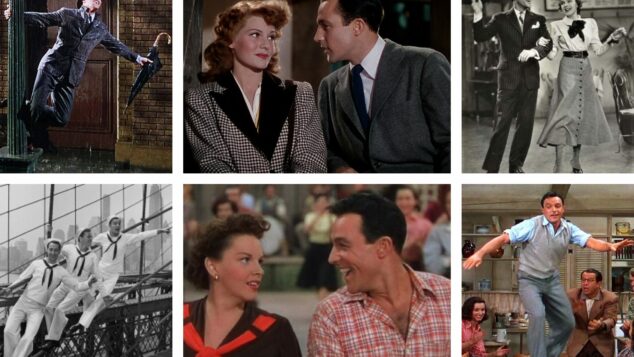 anemptytextlline
anemptytextlline -
 anemptytextlline
anemptytextlline -
 anemptytextlline
anemptytextlline -
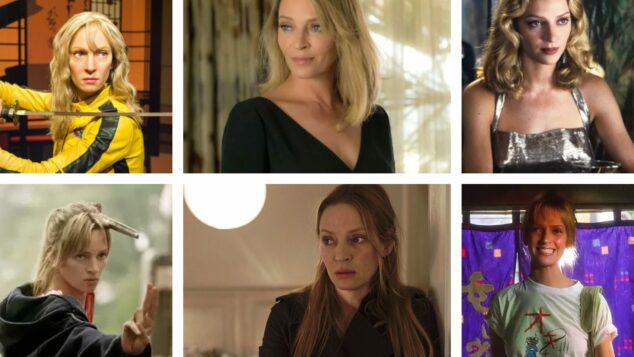 anemptytextlline
anemptytextlline -
 anemptytextlline
anemptytextlline -
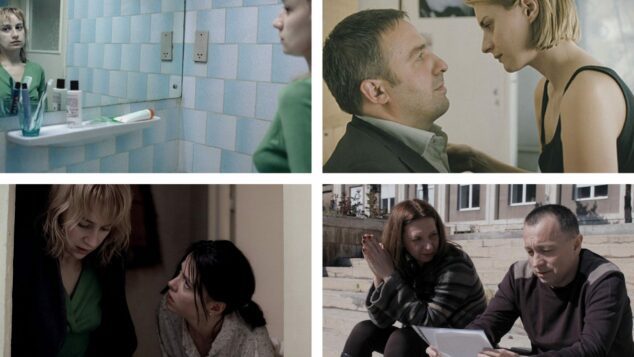 anemptytextlline
anemptytextlline -
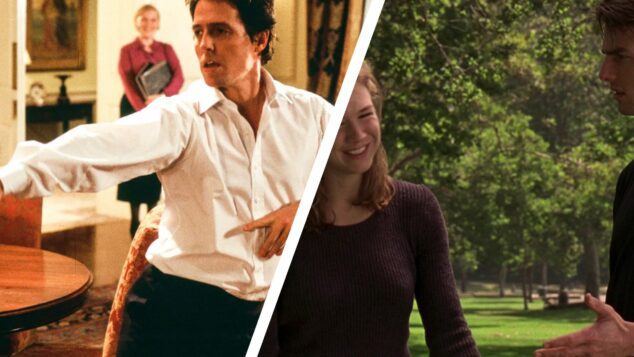 anemptytextlline
anemptytextlline


![A Trip to the Moon: In Its Original 1902 Colors [Blu-ray/DVD Dual-Edition Format]](https://m.media-amazon.com/images/I/51JSffrtlCL.jpg)
![DER GROSSE EISENBAHNRAUB - MOV [Blu-ray] [1979]](https://m.media-amazon.com/images/I/51cBzNLlDqL.jpg)
![Intolerance (Loves struggle throughout the ages) [Masters of Cinema] (1916) (Blu-ray)](https://m.media-amazon.com/images/I/5187xfNnMTL.jpg)

![Das Cabinet Des Dr. Caligari (Masters of Cinema) (DUAL FORMAT Edition) [Blu-ray]](https://m.media-amazon.com/images/I/51VZacNqAtL.jpg)

![Sunrise [Blu-ray + DVD] (Masters of Cinema) (1927)](https://m.media-amazon.com/images/I/51Imq-5xSeL.jpg)
![City Lights (The Criterion Collection) [Blu-ray]](https://m.media-amazon.com/images/I/51jZu5gR8GL.jpg)
![Gone With The Wind [Blu-ray] [1939] [Region Free]](https://m.media-amazon.com/images/I/51l3P-CMTOL.jpg)
![Citizen Kane: 75th Anniversary (BD) [Blu-ray]](https://m.media-amazon.com/images/I/51E10NE-jNL.jpg)
![Double Indemnity [Masters of Cinema] (Blu-ray) [1944]](https://m.media-amazon.com/images/I/51E0P2zMDRL.jpg)
![Seven Samurai (The Criterion Collection) [Blu-ray]](https://m.media-amazon.com/images/I/31gmvs4VbNL.jpg)
![North By Northwest [Blu-ray] [1959] [Region Free]](https://m.media-amazon.com/images/I/51qpdPB8pjL.jpg)
![Last Year at Marienbad (1961) ( L'Année dernière à Marienbad ) ( L'Anno scorso a Marienbad ) [ Blu-Ray, Reg.A/B/C Import - France ]](https://m.media-amazon.com/images/I/517amHopEmS.jpg)
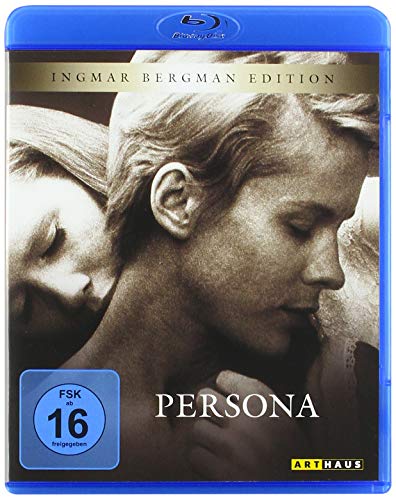
![The Godfather [Blu-ray] [1972] [Region Free]](https://m.media-amazon.com/images/I/51vHHq72OBL.jpg)
![Blade Runner: The Final Cut [Blu-ray] [1982] [Special Poster Edition] [Region Free]](https://m.media-amazon.com/images/I/51HfT3zj4PL.jpg)
![Blue Velvet (The Criterion Collection) [Blu-ray]](https://m.media-amazon.com/images/I/51kr7J05qML.jpg)
![Pulp Fiction [Blu-ray]](https://m.media-amazon.com/images/I/51k5Zgb5HfL.jpg)
![Beau Travail(1999) (Criterion Collection) UK Only [Blu-ray] [2020]](https://m.media-amazon.com/images/I/41N3wia-svL.jpg)

![MILLION DOLLAR BABY - MOVIE [Blu-ray] [2004]](https://m.media-amazon.com/images/I/51TshNoqC4L.jpg)
![The Act of Killing [Blu-ray]](https://m.media-amazon.com/images/I/51mEOyY-7kL.jpg)
![The Grand Budapest Hotel (2014) (Criterion Collection) UK Only [Blu-ray] [2020]](https://m.media-amazon.com/images/I/51g9-r2MUTL.jpg)
